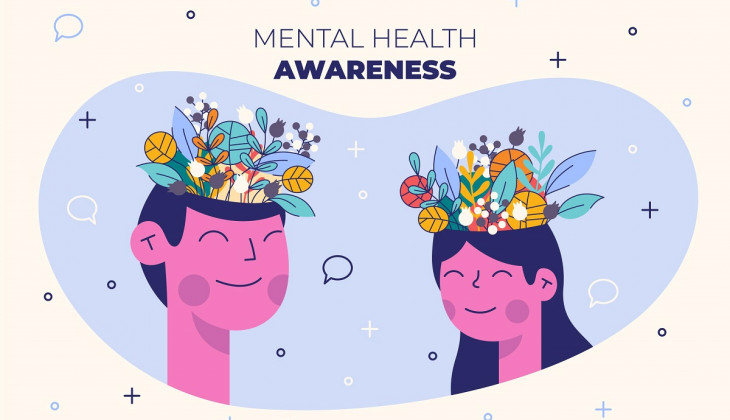On 10 October 2021, the world commemorates “World Mental Health Day.” In response, the UGM Academic Hospital (RSA) held a Health Talkshow with the theme ‘Equality in Mental Health for All’ presenting a mental health specialist from the UGM Academic Hospital (RSA), Tika Prasetiawati. The webinar was broadcast on the UGM RSA YouTube channel on Tuesday (12/10). Through this opportunity, Doctor Tika invited people to understand the concept of mental health.
Referring to a definition from the World Health Organization (WHO), doctor Tika said there are four criteria for a mentally healthy person. First, the person should know their weaknesses and strengths.
Second, they can overcome conflicts in their lives. It is okay if they cannot solve the problem directly, but they should have awareness of themselves. They seek help when they cannot solve the problem by themselves.
Third, the person is productive which is beneficial for themselves and others. And last, they have an active role in the community.
“If one of these criteria is not met, then the person can be categorized as a person with a mental problem or a mental disorder. So, all of the four components must be fulfilled,” said doctor Tika.
More specifically, people with mental problems are different from people with mental disorders. People with mental problems are those who are in a condition prone to mental disorders. For example, chronic disease patients (long recovery from illness) as they are prone to depression, anxiety, and stress. Another example is people who have recently experienced life’s challenges such as fires, divorces, or losing a job.
Meanwhile, people with mental disorders are those who have disturbances in the function of thinking, feeling, and behavior. People with mental disorders are characterized by a decreased quality of life. For example, someone who experiences feelings of sadness. Everyone can and has the right to feel sad. However, when the sadness prevents someone from carrying out daily activities, such as eating, then the person has a mental disorder.
“This includes people with anxiety. An anxious mother cannot go shopping to meet her needs at the market because she is afraid of people. Now, if she experiences this situation and it reduces the quality of life, it is said to be a mental disorder,” explained doctor Tika.
Then, what is the difference between people with mental disorders and “crazy” people?
Doctor Tika confirmed that calling people “crazy” is wrong. The term “crazy” does not exist in mental health science. People who are referred to by society as “crazy people” are actually people with severe mental disorders, for example, schizophrenia. Those suffering from this disorder cannot distinguish between the function of thinking with the existing reality.
“There is no such thing as a ‘crazy’ mental disorder. The term (crazy person) is not used,” concluded doctor Tika.
Doctor Tika is concerned when people call those with severe mental disorders “crazy people”. So far, the use of this term has caused a negative stigma in society.
“The correct term should be people with mental disorders or mental or psychosocial disabilities. That’s more pleasant to hear than calling ‘crazy people’,” added doctor Tika.
Click here (https://www.youtube.com/watch?v=dOE-kyw4axg) to find out more about mental health.
Source: https://www.ugm.ac.id/id/berita/21814-memahami-konsep-kesehatan-jiwa



